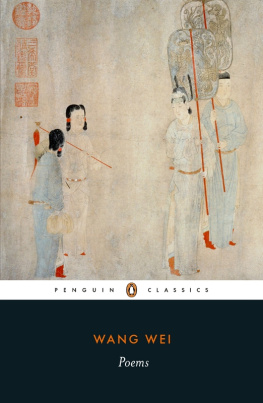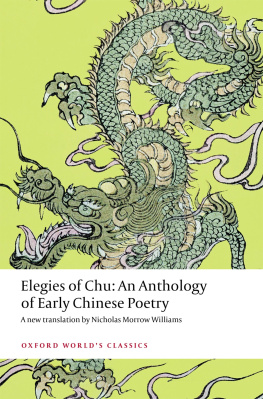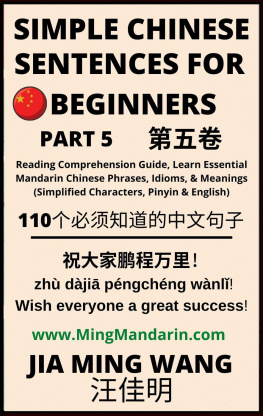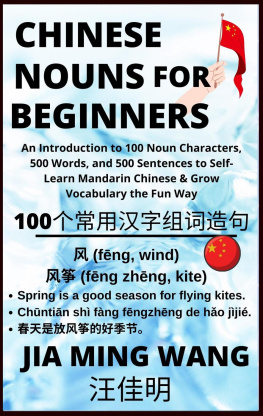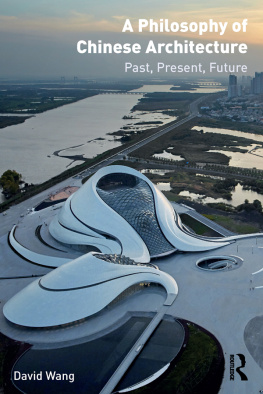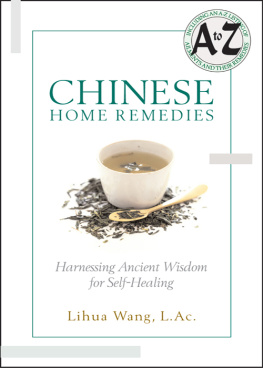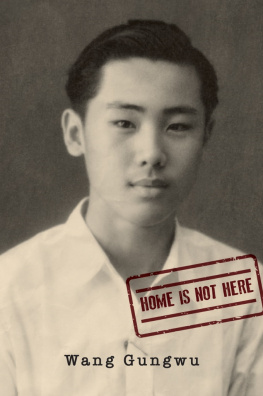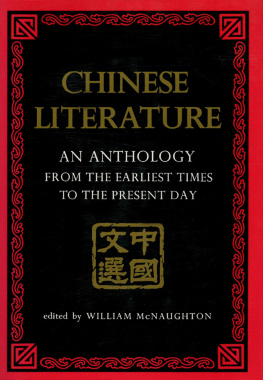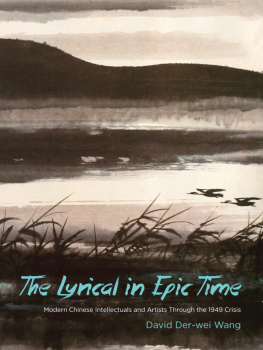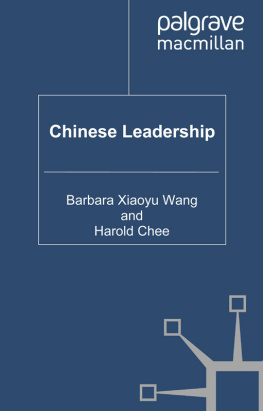Contents
WANG WEI: POEMS
WANG WEI (699761) flourished in the mid Tang period, generally regarded as the apogee of Chinese civilization. He was precociously talented, and esteemed in his lifetime for his poetry, painting, and music, though it is only as a poet that he can now be known. He had a successful career in the civil service and enjoyed metropolitan and court life, but his most characteristic poetry reflects his deep feeling for the natural world and for rural seclusion. He was a practising Buddhist and his tone of voice, compared with that of his great contemporaries, Li Po and Tu Fu, is quiet. G. W.
ROBINSON had a classical education up to the age of nineteen. He served in the army for six years during the Second World War, in the course of which he learned some Japanese. He subsequently studied classical Chinese, and then specialized in the ancient history of Japan. After a year in Japan he was for a short period a lecturer in Far Eastern History at the School of Oriental and African studies in London. From 1957, he lived in the Languedoc region of France.
Appendix I
A letter to Pei Ti from the Hills
This twelfth month the weather has been bright and agreeable, and I could have come over the mountain, but I hesitated to disturb you, deep as you are in the Classics.
So I went off for a walk in the hills. I rested at the Kanpei Temple, where I had something to eat with the hill monks, before I left and went north over the Black Water. The clear moon lit up all the country. In the night I went up Huatzu Hill, and the waters of the Wang River were rippling up and down with the moon. Distant lights in the cold hills were coming and going beyond the woods. The barking of the winter dogs in the deep lanes sounded like leopards.
The pounding of grain in the village could be heard between the strokes of a distant bell. Now I am sitting by myself. The servants are asleep. I am thinking a lot about old days, our composing poems as we walked arm in arm along steep paths beside clear streams. We must wait for the spring, when all the grasses and trees will come out again and we can look at the spring hills. The light dace coming out of the water.
The gulls soaring. Dew wetting the green banks. The morning call of the pheasants in the corn. All this is not far off, and then you can surely come and wander about with me? If it werent for your natural genius, I would of course not impose anything so inessential on you. But it holds deep interest. No urgency.
This goes to you by a hillman. No more now. From Wang Wei, man of the hills.
Appendix II
The story of the Peach Blossom Spring by Tao Chien (Tao Yan-ming)
During the Taiyan period of the Chin dynasty there was a man of Wuling who lived by fishing. He went along a stream and forgot how far he had gone. Suddenly he found himself in a forest of peach blossom extending several hundred paces along both banks, unmixed with any other sort of tree.
The fragrance was lovely, and fallen petals were everywhere. The fisherman was extremely surprised, and continued onwards in the hope of reaching the limit of this forest. The forest ended at the source of the stream. There he came on a hill, and in the hill a small opening, from which there seemed to come some light. So he abandoned his boat and went through the opening. The passage was at first so narrow that a man could only just pass, but after going some fifty paces or so, he found that it widened out into a broad and bright place.
On the level ground there were dignified buildings, as well as good ricefields, fine pools, mulberry trees and bamboos. There were roads and lanes criss-crossing, and the sounds of fowls and dogs could be heard. People were coming and going, busy sowing seed, and the clothes of both the men and the women looked foreign. Both the grey-haired elders and the youngest children had an air of natural happiness. They were much amazed at the sight of the fisherman, and asked him where he had come from, to which he replied fully. They then took him back to one of their houses, put wine before him, killed a fowl, and gave him a meal.
When news of this man became known in the village, they all came along to find out about him. They said of themselves that their ancestors, escaping from the troubles of the Chin period, had brought away their wives and children and the other inhabitants of their locality to this isolated place, and that subsequently no one had left there. This had led to their being cut off from those outside. They asked what dynasty there was now, they themselves having no knowledge of the Han dynasty, not to mention those of Wei and Chin. The fisherman replied fully and precisely to their questions, and they were all dumbfounded. The others all came and invited the man to their houses, and all gave him food and drink.
He stayed for several days before taking his leave and departing. The people had meanwhile told him that there was no object in divulging their existence to others. When he emerged, he regained his boat and retraced his route, noting it at every turn. When he reached the prefecture, he went to the prefect and told his tale. The prefect thereupon dispatched someone to go with him and find the route he had noted, but they lost their way and could not find it again. Liu Tz-chi of Nanyang, a man of quality, heard the tale and was eager to go off to the place himself.
But before anything had been achieved, he was taken ill and died, and since then no one has looked for the stream.
Select Bibliography
The following books are referred to in the introduction and notes: Jerome Chen and Michael Bullock:
Poems of Solitude (Abelard-Schuman, 1960). A. R. Davis: (introduction to)
The Penguin Book of Chinese Verse (Penguin Books, 1962). A. C. C.
Graham: Poems of the Late Tang (Penguin Classics, 1965). David Hawkes: Chu Tzu: Songs of the South (Oxford University Press, 1959). James J. Y. Liu: The Art of Chinese Poetry (Routledge & Kegan Paul, 1962). Y. Y.
Liu: The Poetry of Li Shang-yin (Columbia University Press, 1969). Arthur Waley: The Analects of Confucius (George Allen & Unwin, 1938). Arthur Waley: The Book of Songs (George Allen & Unwin, 1937). Burton Watson: Chinese Lyricism: Shih Poems from the Second to the Twelfth Century (Columbia University Press, 1971). Chen I-hsin: Wang Wei Shih-hsan (Jenmin Wenhseh Chupan She, 1959). 6 of the Chgoku Shijin Sensh, Iwanami Shoten, 1958). 6 of the Chgoku Shijin Sensh, Iwanami Shoten, 1958).
Kobayashi Taichir: I no Shgai to Geijutsu (Zenkoku Shob, 1944).
The Wang River Sequence
My country retreat is in the hill valley of the Wang River. There are pleasant walks among such places as Meng Wall Hollow, Huatzu Hill, Apricot Wood House, Bamboo Hill, Deer Park, Magnolia Park, Dogwood Bank, Sophora Walk, Lake Pavilion, South Hill, Lake I, Willow Waves, the Rapids by the Luans, Gold Dust Spring, White Stone Shallows, North Hill, Bamboo Grove House, Magnolia Slope, Lacquer Garden and Pepper Garden. Pei Ti and I occupied our leisure in writing quatrains about these places.
Meng Wall Hollow
New home near this Meng Wall Old trees some dying willows still And who will live here in the future To grieve vainly for him that was here before?
Huatzu Hill
Flying birds away into endless spaces Ranged hills all autumn colours again.

